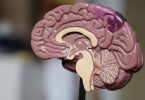Interview Conducted by Jason S. Lupoi, Ph.D.
Across the globe, there are millions upon millions of people in need of something to help filter out the mounting noise, to let them focus on the things that really matter, to extinguish debilitations like anxiety or depression, to conquer addictions to legal and illegal substances, in short, to allow them to feel what it truly means to be human. Although the scientific data might be in its infancy — due to decades of slanderous propaganda not at all based in science — the lore and the lure of psychedelic mushrooms is augmenting to its inevitable crescendo.
The fact that these ancient little caps can do all of the aforementioned things may stun you, or seem too good to be true. After all, for decades, psilocybin has been categorized as a Schedule I drug. But that’s an example of the deceitful propaganda that we have been fed, and many fed up people are opening their minds and empowering themselves with a mushroom that’s been suggested to be at the root of what it means to be human.
Recently, I spoke with Derek Chase, president of Flora + Bast Cannabis and founder of Psilouette Wellbeing, to learn more about how psilocybin can become a part of mainstream culture, as Psilouette formulates psilocybin mushroom gummies “as an accessible way to get the conversation started around plant medicine, legitimize these elusive products, and educate the public on mushrooms, plant medicine and the benefits of psilocybin.”
Jason S. Lupoi, Ph.D.: What role do you see psychedelic mushrooms playing in the future of humankind? What void do the mushrooms fill?
Derek Chase: I think mushrooms and other naturally-derived entheogens such as DMT (N,N-dimethyltryptamine), ibogaine, ayahuasca, and mescaline will play a pivotal role in the future of our collective human consciousness. Since the dawn of agriculture, we have been departing from our symbiotic relationship with nature. Mushrooms and the actives they produce hold a large amount of potential to positively influence our health at every level – physical, mental, emotional, and spiritual – by forcing consumers to confront hidden or hard to reach truths about ourselves, and severing the stranglehold that our brain’s Default Mode Networks have on our identities, actions, and philosophies. Mushrooms will help us deal with our many traumas that define who we are, and help us move past obstructive neural pathways that are stifling our health and human potential. Mushrooms will help us realize that we are not our bodies, and will lead us back to the right understanding that we are souls first and humans second. Mushrooms will serve to dissolve our egos, if only for moments at a time, helping us to reclaim our identities as part of nature’s whole.
How can a magic mushroom recreational market work?
It is a great question because the recreational market means different things to different people. Recreational use can range from therapeutic use such as onsite consumption with a trained psychedelic therapist to substance replacement, such as a means to replace alcohol. Oregon has already started to put their recreational market rules in place, championing a therapeutics mindset with a potential rule binding place of purchase with administration of the drug. This means there are no take home goods. This may seem like it would inhibit the accessibility of psilocybin therapy, but I believe it to be a smart measure, as it ensures a therapeutic outcome for consumers, and reduces the occurrence of “bad trips” which could easily snowball into a negative sentiment about the “dangers” of psilocybin, clouding the data around the medicinal potential of the substance.
Such sentiment is particularly damaging for any psychedelic substance, since the experience is dictated in large part by your internal “set”, which is the mental state a person brings to the psychedelic experience such as mood, expectations, and energy levels. Along these same lines, a recreation market would benefit from education and protocols to achieve therapeutic benefits, as well as “settings”, such as physical and social environments, that are designed to usher in positive psychedelic experiences. The options for psychedelic settings are vast in number and diversity, ranging from doctors’ offices to biohacking studios to all natural settings like forests and deserts. To sum it up, there are countless options for the regulation of a legal, recreational psychedelic market, and honoring “set & setting” as the guidepost will ensure optimal therapeutic value.
Why do you think psilocybin (and other Schedule I drugs) have largely been ignored and misrepresented by governments and modern medicine?
I think psilocybin has been ignored by the medical community for a few reasons:
- War on Drugs – Given the counterculture movement of the 60’s and legal crackdown in the 70’s, the result was the scheduling of psychedelics into Schedule I, defining them as having no accepted medical use and a high potential for abuse. Researchers didn’t even have access to study these substances.
- Not your typical pharmaceutical – Instead of a “set it and forget it” mentality of simply ingesting a substance and expecting magical results, mushrooms require that you be your own medicine, by selecting the setting and intention for the medicine.
- Difficult to patent – Natural substances are basically impossible to patent, so companies are skittish to invest vast amounts of money into a non-ownable technology.
- Broad benefits – Big Pharma has trained us to believe that specific ailments require specific drugs. Psychedelics do not operate under the same paradigm, as psychedelics treat a myriad of ailments when used properly.
What medicinal aspects of psilocybin are most promising to you?
Psilocybin’s medicinal properties are so vast and global that it is difficult to choose a specific ailment that it cannot help treat! Below is my list of the biggest, most obvious medical uses for the substance:
- Trauma – We all experience trauma and are formed by it, both for the positive and negative, depending on how we are able to cope with the traumatic event. Psilocybin therapy helps us identify traumatic events that we have not fully or optimally processed, so that we can take action to rectify the negative effects and energetics behind the imbalance. Within trauma, I believe the two biggest groups of people that can be helped are people suffering the harmful effects of addiction and obesity, where trauma is widely understood as the underlying rationale for the presence of the ailment.
- Brain health – Psilocybin shows efficacy in neuro-regeneration, a paradigm historically thought to be impossible.
- Palliative care – Coming to terms with end of life is one of life’s big challenges, and using psychedelics to help us understand that we are not just our bodies, but also souls, helps to reduce anxiety associated with dying.
- Aphrodisiac – Psilocybin is considered one of the original aphrodisiacs, enhancing connection with your partner and opening energetic channels to more securely connect with your partner during love making.
- Chronic pain – With one in five Americans struggling with chronic pain, and no effective medical treatment, there is a big need for alternative care for pain. Moreover, there are huge problems with opioids and other current standards of care. Psilocybin and its ability to promote neuroplasticity in a manner that reduces chronic pain is a huge potential market for the substance.
With consuming psilocybin in a gummy form, will consumers experience the trademark nausea?
The manner in which we process our products reduces the chances of experiencing nausea; only about 5% of our consumers report nausea when asked. We utilize a low-heat method to manufacture our products and this process helps break down hard-to-digest parts of the mushroom like chitin and other molecules that cause immune responses such as nausea.
Have you come across any adverse effects of using psilocybin in your work or in the scientific literature?
While psilocybin-containing mushrooms are non-toxic, you could eat your weight in mushrooms and be physically fine. However, they do pose psychological danger if used improperly. As is commonly referred to as the main input for your psychedelic experience, ‘set & setting’ are crucial to ensuring a positive outcome when administering psilocybin. Entheogens of all varieties are not therapeutic in and of themselves; rather, it is the combination of multiple factors, including your intention for taking the substance, where you are physically, your psychological state, and your dose.
Where are or will your gummies be available?
Right now, we donate our gummies to individuals looking to leverage psilocybin for personal growth and development, which is non-medical speak for treating trauma-related ailments like depression, anxiety, and post-traumatic stress disorder. We hope to be available for sale in Oregon as soon as the market will bear.
In Terence McKenna’s Food of the Gods, early hominids are theorized as having stumbled upon and sampled psychedelic mushrooms, resulting in their more rapid evolutionary boom. He even equates spoken language, something innately human, as stemming from the hominids’ needs to communicate their experiences. (The documentary Fantastic Fungi shows a visualization of this that gave me chills.) So, according to McKenna, these mushrooms are deep-rooted in our DNA. In our modern world, what changes would you expect to come about if vast hordes of humanity began to utilize psilocybin?
I love this book! And I very much believe in the ‘stoned ape’ theory of evolution. This question probably deserves an extensive conversation, but, in short, I agree that we co-evolved alongside medicinal substances like psilocybin and cannabis. While I want to be optimistic about mushrooms and their ability to re-bind us to our symbiotic relationship with nature, I don’t think the effect will be as straightforward as we like to think.








